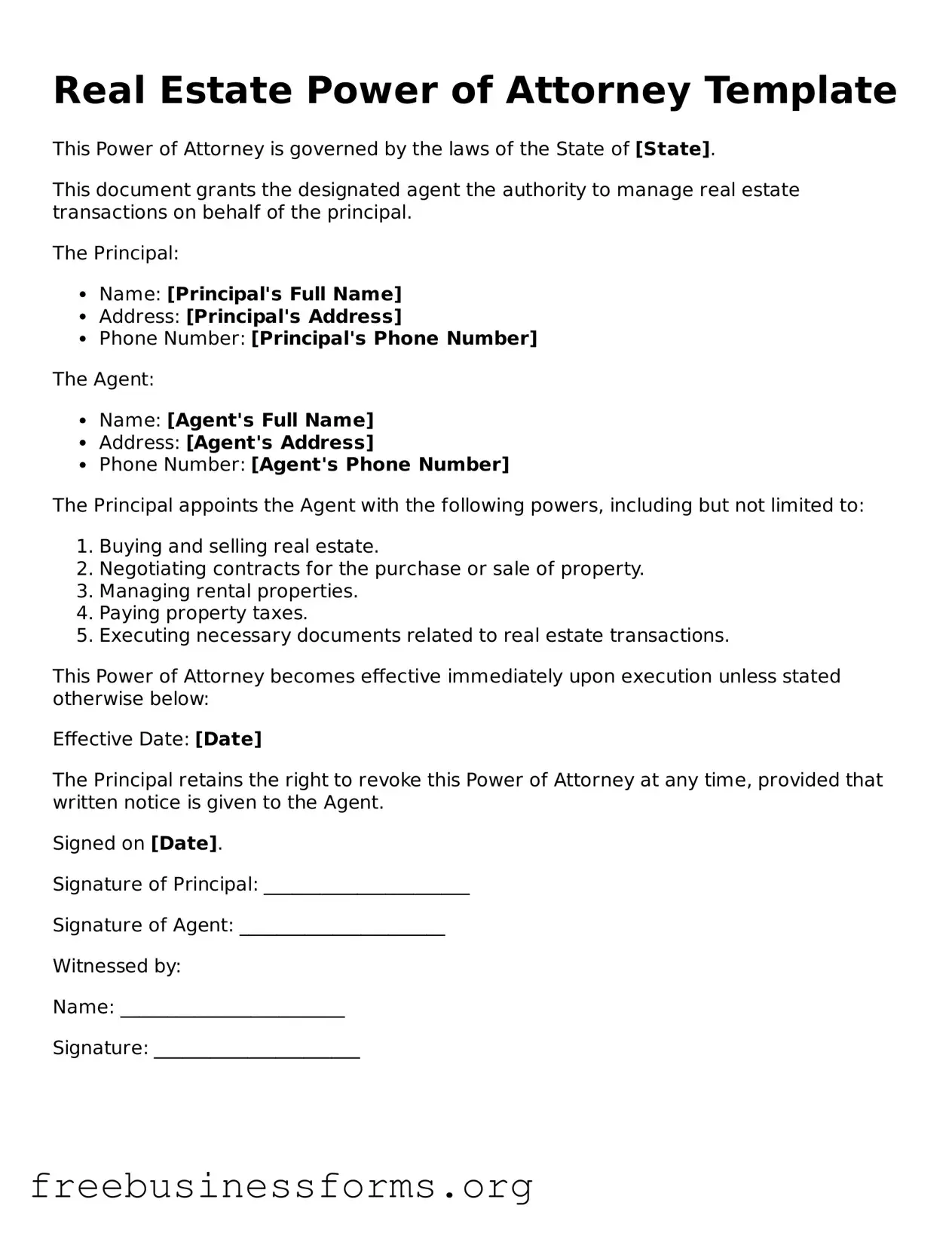Official Real Estate Power of Attorney Form
The Real Estate Power of Attorney form is a legal document that allows one person to authorize another to act on their behalf in real estate transactions. This form can simplify the buying, selling, or managing of property by granting specific powers to the designated agent. Understanding its purpose and the implications of its use is essential for anyone involved in real estate dealings.
Open Form Here

Official Real Estate Power of Attorney Form
Open Form Here

Open Form Here
or
↓ PDF File
Quickly complete this form online
Complete your Real Estate Power of Attorney online quickly — edit, save, download.